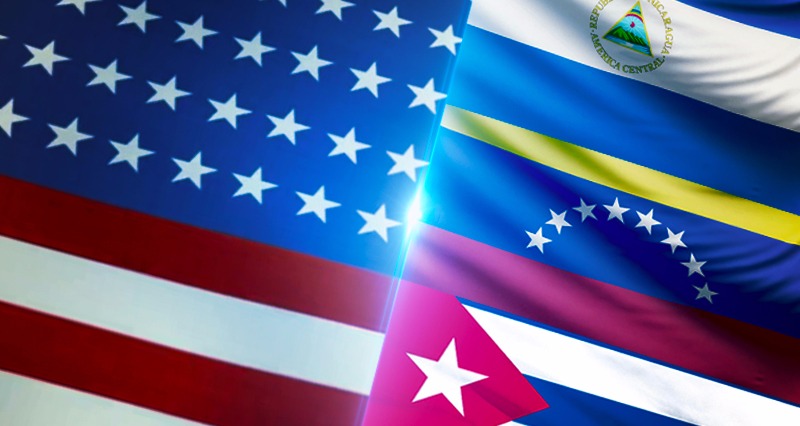John Bolton recently referred to Venezuela, Cuba and Nicaragua as a “three tyrants” and announced that sanctions would be imposed against all three. According to him, all three countries will soon experience the “hard sanctions regime”. The main reason, according to Bolton, is human rights violations. The sanctions will include the ban on US citizens who take part in trade in Venezuela gold, also 2 dozens entities owned or controlled by the cuban military and intelligence services will be put onto the sanctions blacklist.
At the same time Bolton noted that the US still has allies in the Latin America’s political sphere:
“The recent elections of like-minded leaders in key countries, including Ivan Duque in Colombia, and last weekend Jair Bolsonaro in Brazil, are positive signs for the future of the region, and demonstrate a growing regional commitment to free-market principles, and open, transparent, and accountable governance,” Bolton said in his speech at Miami-Dade College.
A new anticommunist wave in American foreign politics?
Bolton’s statements are very similar to the principles of the Monroe doctrine of 1823, according to which Washington declared the territories of North and South America to be Washington’s responsibility. While ostensibly established to “free” former European colonies in South America, this long running position attempt to fold countries in South America into the US’ sphere of influence, and was used as a justification for imperialist intervention by several US presidents.
Despite that the doctrine was eventually reinterpretted to be a promotion of multi-polarity and sovereignty before the start of World War 2 (regardless of which the US persisted in interventionist policies in places like Haiti), the Cold War quickly set America back on a direct path of persistent and often violent interventions in numerous countries across Latin America, leaving hundreds of thousands dead or in the grip of a dictator as Washington’s behest, often for decades.
In Bolton’s political discourse we can clearly see the revival of cold-war style anti-communist rhetoric. US national security documents from 2017 refer to Cuba and Venezuela as ‘anachronic left authoritarian models’, employing the standard logic of imperialism which says that there is a singular and normative path of “progress” for which the colonizer sets the parameters.
The United States has been particularly active in the global south the last few years, helping to fund and militarize anti-government protests in Nicaragua, and likely playing a role in the assassination attempt against Venezuelan president Nicolas Maduro earlier this year. The US also imposed increased sanctions on a number of individuals and organizations within Venezuela, and set up barriers for sending money in or out of the country, alongside attacks on Venezuelan social media accounts.
The hardline anti-communist discourse of Bolton can also be explained in part by the context of the upcoming US midterm elections. For example, in Florida, a large part of electorate is made up of migrants from Cuba, who are extremely anti-communist. Bolton’s aggressive declaration is, at least in part, a campaign strategy to win votes in an important swing state. This is somewhat of a departure from Trump’s election campaign rhetoric of isolationist foreign policy.
Who are the allies and enemies of the US in Latin America?
Bolton clearly noticed that US still has allies in the region who share the values of American democracy and can be called partners. He pointed out that he is going to expand collaboration with Mexico, Brazil, Argentina and Columbia. The election of hard right presidents in Columbia and Brazil is a “positive signal for the region”.
Aside from Venezuela, Cuba and Nicaragua as previously mentioned, Bolivia, Ecuador and (to a lesser degree) Argentina maintain a critical relationship to Washington’s interventionist policies.
Forecasts
The US will strengthen sanctions against the “three of tyrants” while attempting to destabilize these countries from within. The protests launched in Venezuela and Nicaragua have been funded and strategized by globalist forces in order to institute regime change, and force a “business friendly” climate in South America. While the US had already been pursuing a policy of regime change and sanctions, the election of Bolsonaro creates new possibilities for eliminating governments which have defied Washington and opening up markets for foreign business interests. We are likely to see a direct confrontation take place in Venezuela which has become increasingly unstable as a result economic pressure and internal violence.

















Leave a Reply